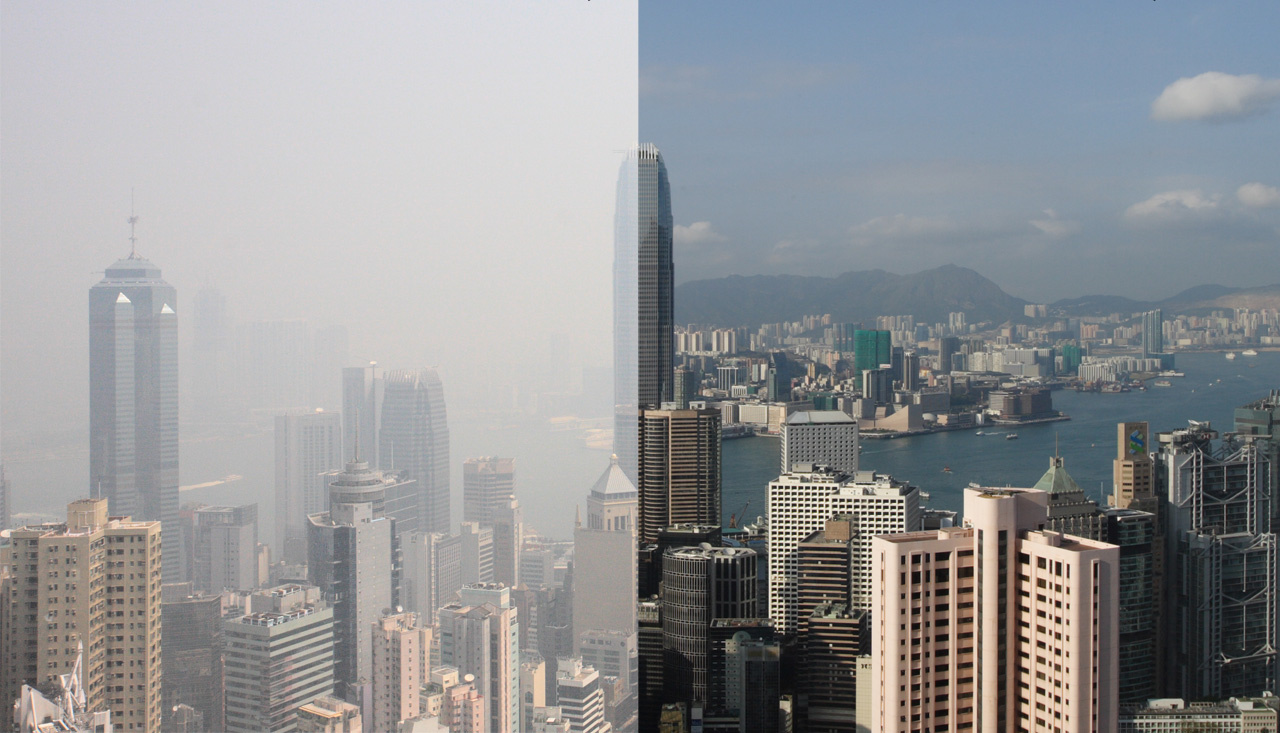The Environmental Protection Department (EPD) has recorded a gradual increase in pollution levels since July 17,2019. According to the EPD’s forecast, it is expected that the AQHI at some general and roadside air monitoring stations may reach the “Serious” level later on that day. Under the influence of the outer subsiding air of tropical cyclone Danas, the weather in Hong Kong is hazy with sunny periods and light wind. Hong Kong is being affected by an air mass with higher background pollutant concentrations. Higher than normal levels of ozone and particulates have been recorded in the territory during noon. The sunshine enhances photochemical smog activity and the rapid formation of ozone and fine particulates in the Pearl River Delta region. The high level of ozone has promoted the formation of nitrogen dioxide, particularly in parts of the urban areas and at the roadside. According to the Hong Kong Observatory, a southwesterly airstream will bring a few showers and thunderstorms to the south China coast in the latter part of this week. It is expected that pollution levels will be improved by then. With a health risk category in the “Very High” range or above, children, the elderly and persons with existing heart or respiratory illnesses are advised to reduce physical exertion and outdoor activities to a minimum or avoid such activities. The general public is advised to reduce, or reduce to a minimum, outdoor physical exertion, and to reduce time staying outdoors, especially in areas with heavy traffic. As health effects of air pollutants may vary for individuals, persons who are in doubt or are experiencing discomfort should seek advice from health-care professionals. The public may visit the Centre for Health Protection’s website (www.chp.gov.hk/en/content/9/460/3557.html) for more information on the health effects of air pollution and related health advice.
When the AQHI is at the “Very High” level, employers of outdoor workers performing heavy manual work are advised to assess the risk of outdoor work and take appropriate preventive measures to protect the health of their employees, such as reducing outdoor physical exertion and the time of their stay outdoors, especially in areas with heavy traffic. At the “Serious” level, employers of all outdoor workers are advised to assess the risk of outdoor work and take appropriate preventive measures to protect the health of their employees.



